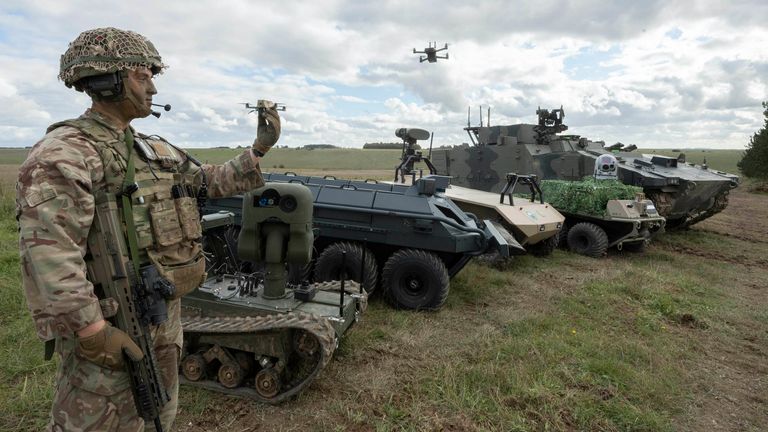[ad_1]
Britain’s armed forces may lack the “modern battle-winning capabilities” they need to meet the demands of future warfare, MPs have warned.
The Commons Public Accounts Committee (PAC) said that while other countries were developing new capabilities such as hypersonic weapons, the Ministry of Defence (MoD) was forced to address “capability gaps”.
It said the Russian invasion of Ukraine was a reminder of the “risks and responsibilities” which come with the UK’s membership of NATO.
Despite a £16.5 billion budget increase in the four years to 2024-25, it expressed frustration at the “complacency” within the MoD over the affordability of its equipment plan.
The Government Integrated Review of foreign policy and defence last year identified Russia as “the most acute threat” to national security.
However the committee said it was concerned recent events meant it still “downplays” the scale of the threat Moscow poses to the UK’s interests.
It also noted that new radar for the RAF’s Typhoon fighter jets was not due to enter service until 2030, even though it was first announced in 2015 and that development work had begun much earlier.
“We are concerned that the department may not have identified all the modern battle-winning capabilities our armed forces need, and also that it is not developing its existing large programmes with sufficient urgency,” it said.
“The invasion of Ukraine highlights rapid technological advances by other potential adversaries beg serious questions about the pace, scope and ambition of the department’s equipment plan.”
Writing a blank cheque?
The committee said that while the MoD was beginning to develop next-generation systems, there was “relatively little money” to exploit promising research during the coming decade and a lack of clarity as to whether they would be truly “battle-winning”.
The committee also questioned the overall affordability of the equipment plan which depended upon delivering billions of pounds of future cost reductions but with no plans as to how they would be achieved.
It expressed concern that a Treasury “contingency” for the new Dreadnought submarines – which will carry the UK’s Trident nuclear deterrent – was being seen as a “blank cheque” by the MoD “freeing it from the need to control costs”.
Poor state of affairs
The committee chair, Dame Meg Hillier, said: “The MoD trumpeted a step change in this year’s equipment plan after the Integrated Review, with new priorities and a huge cash injection – but the invasion of Ukraine has cast in stark relief the realities of current and future warfare.
“Senior officials appear unable to recognise the poor state of affairs in MoD’s procurement or the deep-rooted issues that undermine our confidence that it will actually get a grip on the situation.
“A diminished role in global security, and enhanced risk to our national security and the service personnel defending it, are the unacceptable costs of the ministry’s ongoing and repeated failures.”
Read more:
UK could send hundreds more troops to eastern Europe
Army restructure sees hundreds of tanks and troops return to Germany – less than a year after withdrawal
However, a defence source told the PA news agency they “entirely reject the observations” made in the PAC report.
“It is wrong to say we haven’t identified the modern battle-winning capabilities our armed forces need.
“This report seems to be blind to the integrated review, defence command paper and our latest spending commitments.”
A Ministry of Defence spokesman said: “Our affordable plan for defence outlines £238 billion of investment over the next 10 years including a £24 billion uplift in the current spending round.
“We are delivering ongoing fundamental change to drive value in defence procurement, including enhanced management of projects and greater agility.
“The speed of response and depth of leadership being provided by the UK in response to the invasion of Ukraine has been widely recognised by the international community.”
[ad_2]



